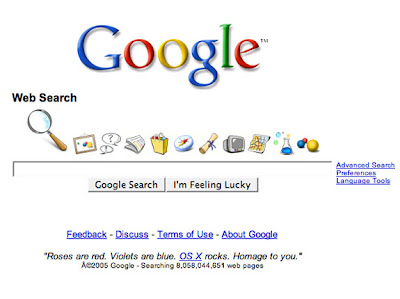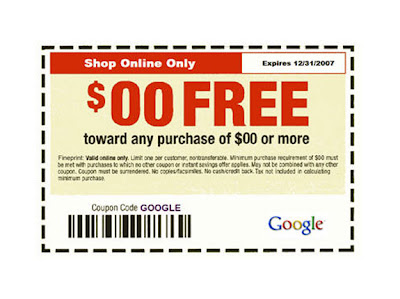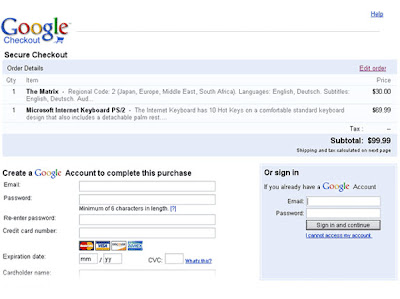 Google Incorporated is arguably the most successful Internet company today. But Google didn't get to where it is without takings risks--some of which have failed spectacularly.
Google Incorporated is arguably the most successful Internet company today. But Google didn't get to where it is without takings risks--some of which have failed spectacularly.For example, remember the Google Accelerator, which was supposed to speed up Web surfing? (A dubious claim, but least it was free.) But you had to pay to get a Google Answer, and eventually people stopped asking. Google Video did so well that the company finally gave up and shelled out big bucks to buy YouTube. If you can't beat 'em, buy 'em.
Some Google flops lasted no more than a day and then vanished without a trace. Other Google efforts have been left to languish like a neglected orphan inside Google's labyrinth of Web services. Still other dogs were released as betas nearly five years ago and are still trapped in Google Labs with apparently little hope of escaping the test tube.
Our list of Google's lead balloons is by no means exhaustive; if you have other candidates, by all means, point them out in our comments section below.
2.Google X:
 One of the most mysterious of Google's flops was its Google X site, a re-designed Google search home page that was styled after the Mac OS Dock user interface on OS X. On the bottom of the page was written "Roses are red. Violets are blue. OS X rocks. Homage to you." The site, which launched in 2005, lasted one day before being shuttered by Google for no public reason. Google X may have been pulled because of worries that Apple's copyright lawyers might not appreciate the "homage." But Google X has lived on with many Internet users cloning the interface for anyone to use.
One of the most mysterious of Google's flops was its Google X site, a re-designed Google search home page that was styled after the Mac OS Dock user interface on OS X. On the bottom of the page was written "Roses are red. Violets are blue. OS X rocks. Homage to you." The site, which launched in 2005, lasted one day before being shuttered by Google for no public reason. Google X may have been pulled because of worries that Apple's copyright lawyers might not appreciate the "homage." But Google X has lived on with many Internet users cloning the interface for anyone to use.3.Google Catalog:

4.Google Video Player: At one time Google thought we needed yet another application to download and play videos on our computers. Married to the company's online service Google Video, the Google Video Player's chief advantage was that it could play back video encoded using Google Video File (yet another video file format that Google thought we needed). But it supported video playlists, and it allowed you to skip ahead in a Google Video even if that portion hadn't downloaded yet. It turned out that the Web was already being well served with video players. Critics dinged the Google player for poor organization of video clips, paid content that varied too much in price, and its inability to transfer video content to portable devices. In August of 2007 Google yanked the player from the Google Video Web site.
At one time Google thought we needed yet another application to download and play videos on our computers. Married to the company's online service Google Video, the Google Video Player's chief advantage was that it could play back video encoded using Google Video File (yet another video file format that Google thought we needed). But it supported video playlists, and it allowed you to skip ahead in a Google Video even if that portion hadn't downloaded yet. It turned out that the Web was already being well served with video players. Critics dinged the Google player for poor organization of video clips, paid content that varied too much in price, and its inability to transfer video content to portable devices. In August of 2007 Google yanked the player from the Google Video Web site.
5.Google Web Accelerator: Google's Web Accelerator is a combination of something you don't really need and something that may compromise your privacy. The software is still offered by Google and promises to speed up page load times of Web pages by as much as a less-than-stunning 20 percent.
Google's Web Accelerator is a combination of something you don't really need and something that may compromise your privacy. The software is still offered by Google and promises to speed up page load times of Web pages by as much as a less-than-stunning 20 percent.
Reviewers said that the target audience for Google Web Accelerator, broadband users, already can retrieve Web sites fast enough. And from the start, privacy activists such as Richard Smith accused Google of using Web Accelerator as a market research tool. Smith said, "They'll be looking at what people are doing on the Internet, what they're reading, what they're buying? There's potentially a lot of information just from the click-stream of the URLs people visit."
6.What Happened to Google Answers? It FloppedFor five years Google Answers allowed anyone to post a question along with a bid price they were willing to pay for a researched answer. A prescreened group of Google Answer researchers would accept the fee (or not) and if they did accept the offer, answer the question.
It FloppedFor five years Google Answers allowed anyone to post a question along with a bid price they were willing to pay for a researched answer. A prescreened group of Google Answer researchers would accept the fee (or not) and if they did accept the offer, answer the question.
Along with well-heeled high school and college students, I was a big fan of the site. Answers were usually complete, well researched, and well written. But quality isn't always rewarded on the Internet. Google just couldn't compete with Yahoo Answers, a free service that relied not on paying customers, but on a mammoth and loyal Yahoo community. Google's official Google Answers response to the question "What has happened to Answers?" is "There is no answer at this time." Google may not be accepting your questions, but you can still search the database of answers.
 It almost seems as if Google Coupons is Google's equivalent to a white rhino--they both exist but few have seen one. Google Coupons is a feature within the Google Local Business Center service that allows companies to create Web-based coupons and display them within Google Maps.
It almost seems as if Google Coupons is Google's equivalent to a white rhino--they both exist but few have seen one. Google Coupons is a feature within the Google Local Business Center service that allows companies to create Web-based coupons and display them within Google Maps.The idea behind Google Coupons is that when you are searching for a local business using Google Maps, a local company can deliver a coupon enticing you to do business with it. The coupon would be displayed next to the Google Map and could be printed out and redeemed.
It's a nifty idea, but as an avid user of Google Maps, in the two years Google Coupons has been available I've never come across one when using a map. Have you?
 From the Google department of way-before-its time came Google Voice Search. The service, which was originally an experiment within Google Labs, was launched in 2003 and worked like this. First, visit the Google Voice Search site. Next, call the phone number on the screen and speak your keyword search query. Then go back to your browser, click on the link on the Google Voice Search site, and bingo, a window with the search results appears.
From the Google department of way-before-its time came Google Voice Search. The service, which was originally an experiment within Google Labs, was launched in 2003 and worked like this. First, visit the Google Voice Search site. Next, call the phone number on the screen and speak your keyword search query. Then go back to your browser, click on the link on the Google Voice Search site, and bingo, a window with the search results appears.
No wonder this service got nixed. Searching the Web like this is comparable to calling up your brother-in-law to drive across town and brush your teeth for you before you go to bed. On the other hand, this cool technology experiment was a precursor to mobile phone services of today such as ChaCha and Google's own, very handy Google 411 service.
9.Google Viewer: The idea behind the Google Viewer software program was that you could type in a query, press submit, and then sit back and watch as it loaded actual Web pages that it found. Next, Google Viewer displayed the results to you as a slide show. The program, which PC World reported on in 2002, was eventually abandoned.
The idea behind the Google Viewer software program was that you could type in a query, press submit, and then sit back and watch as it loaded actual Web pages that it found. Next, Google Viewer displayed the results to you as a slide show. The program, which PC World reported on in 2002, was eventually abandoned.
The idea of sneaking a peak at a Web page before clicking on the link eventually came to fruition--it just didn't require a software download to do it. Today you can preview pages in search results delivered by Ask.com, Powerset, and Yahoo, no application required.
10.Google Checkout: In June 2007 thousands of eBay loyalists descended on Boston for eBay's annual sellers convention. And in hopes of promoting its new Google Checkout payment system--which would be competing directly with eBay's Paypal subsidiary--Google organized a party to be held during the eBay show, inviting eBay sellers to attend. In addition, the Google party was supposed to be a protest against eBay for barring merchants from using Google Checkout.
In June 2007 thousands of eBay loyalists descended on Boston for eBay's annual sellers convention. And in hopes of promoting its new Google Checkout payment system--which would be competing directly with eBay's Paypal subsidiary--Google organized a party to be held during the eBay show, inviting eBay sellers to attend. In addition, the Google party was supposed to be a protest against eBay for barring merchants from using Google Checkout.
When eBay got wind of Google's plan, it promptly cancelled all of its U.S. ads running on the search engine for more than a week. At the time, eBay was the single largest buyer of search ads on Google.Google cancelled its Boston tea party. (source: pcworld)







0 comments:
Post a Comment